Modernization in Measurement Advisory Panel
Mandate of the Modernization in Measurement Advisory Panel
The primary purpose of the Modernization in Measurement Advisory Panel (MMAP) is to share knowledge and expertise to support EQAO in meeting its digitalization and modernization objectives while ensuring strong methodologies, analytics and knowledge-sharing approaches. EQAO continues to recognize the need for thinking that engages expertise both internal and external to the agency as it pursues its multi-faceted and multi-year modernization initiative.
The MMAP is composed of experts, including practitioners, researchers and scholars in fields related to large-scale assessment. Their tenure will be two years.
The panel is chaired by the EQAO’s Director, Data and Reporting. Its work is reviewed by the EQAO Executive Team. All decision making associated with EQAO’s modernization objectives is the responsibility of the CEO of EQAO and the EQAO Board of Directors.
Role of MMAP
The panel will support EQAO’s work in the following broad content areas:1
- Large-scale assessment modernization and transformation
- The experiences of students, teachers and administrators
- Authentic assessment of pedagogy and student learning—making learning visible
- Approaches to psychometrics
- Technology in assessment
- Contextual influencers
- Knowledge-sharing and reporting
1This list is not exhaustive.
MMAP Members
Lark Barker

Lark Barker is a special education veteran with over 20 years of experience in the education field. Originally a secondary school teacher, she has held numerous roles in schools, including vice-principal, literacy chair and most recently Grade 7 and 8 special education teacher. She has spent the last decade teaching in Toronto, mostly in programs for youth in care, custody or treatment. Her experience teaching in a northern Manitoba Indigenous community and in Mexico provoked her interest in culturally relevant pedagogy and curriculum. She began researching and focusing on teaching reading in 2014, when her son was diagnosed with a specific learning disability in reading phonemics (dyslexia). Since then, she has become a certified structured literacy classroom teacher and recently finished an Orton Gillingham associate-level practicum. She advocates on behalf of Decoding Dyslexia Ontario.
Christian-Charle Bouchard
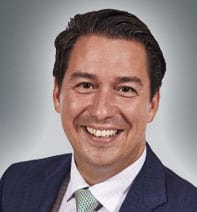
Christian-Charle Bouchard is superintendent of education for the Conseil des écoles publiques de l’Est de l’Ontario. Besides supervising and coaching pedagogical and administrative principals and directors, Mr. Bouchard is responsible for the board’s strategic plan, the professional development of board leaders, board partnerships and system-wide artistic and cultural activities for students. He also supervises many board departments, such as the Corporate and Informational Services and the International Education Bureau.
Mr. Bouchard plays a key role for many system and provincial committees. He is also co-lead for the provincial Managing Information for Student Achievement (MISA) initiative. The MISA group is composed of leaders from each of the 12 French boards in Ontario. Their mandate is to increase both provincial and local capacity for using data and information for evidence-informed decision making to improve student achievement.
Mr. Bouchard has a Supervisory Officer’s Qualification from the Ministry of Education, a master’s degree in education with a concentration in educational administration, a baccalaureate in education and a second in arts with a specialization in English literature and a minor in theatre.
Pino Buffone
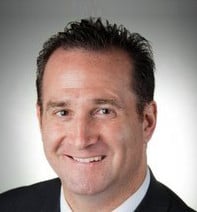
An educator by profession since 1994, Pino has served as a teacher for the Western Quebec School Board (1994–1998) and as a teacher, vice-principal, principal and superintendent for the Ottawa-Carleton District School Board (1998–2017). He is currently Director of Education for the Renfrew County District School Board (2017–present).
As Chief Education Officer and Chief Executive Officer of the district, as well as Secretary to the Board, he is accountable to the Board of Trustees and, through statute, to the Minister of Education for the organization and operation of the district. His key areas of responsibility include the following: student welfare; educational leadership; fiscal responsibility; organizational management; strategic planning; personnel management; policy and procedures; director/board relations; communications and community relations; student, staff and district recognition/public relations; and system leadership.
In addition, Pino has worked on secondment with the Education Quality and Accountability Office (an arm’s-length agency of the Government of Ontario responsible for creating and administering large-scale assessments in Ontario and coordinating Ontario’s participation in national and international assessments) as an education officer and, subsequently, as coordinator of English-Language Assessments (1999–2003).
He is currently a member of the Royal Society of Canada’s Children and Schools COVID-19 Working Group (2020–present) and an education partner with the Education Research Development & Innovation (ERDI) Institute (2018–present). He is also a facilitator of the Supervisory Officers’ Qualification Program (SOQP) of the Eastern Ontario Staff Development Network (2017–present) and a member of the Modernization in Measurement Advisory Panel of the Education Quality and Accountability Office (2016–present).
Pino has served as the president of United Nations Association in Canada—National Capital Region Branch (2007–2012) as well as part-time academic staff at the Faculty of Education—University of Ottawa for the Teacher Education Program and the Native Teacher Education Program (2006–2008).
Colinda Clyne
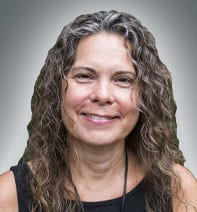
Colinda Clyne is Anishinaabe kwe (Kitigan Zibi Anishinabeg) and curriculum lead for First Nations, Métis and Inuit education, Upper Grand District School Board. An educator for 28 years, Ms. Clyne has been leading and facilitating professional development for over 19 years. In her current role, Ms. Clyne creates the system-wide action plan for First Nations, Métis and Inuit education in her board, builds capacity in K–12 teachers and administrators, connects Elders and knowledge keepers with educators and students, and implements strategies to improve Indigenous student well-being and success. This work is grounded in relationships she strives to build and strengthen within her local community, school communities and beyond. Since 2017, Ms. Clyne has been working with First Nation Metis Math Voices, a multi-year, multi-community research project to collaboratively design culturally responsive mathematics instruction and to learn from and incorporate Indigenous pedagogical perspectives in inclusive classroom settings.
In April 2020, Ms. Clyne started the Anti-Racist Educator Reads podcast. She also works as a writer and Indigenous content consultant for a number of Canadian publishers.
Jimmy de la Torre
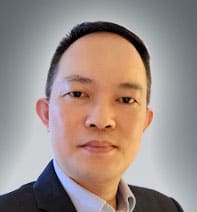
Dr. Jimmy de la Torre is a professor in the Human Communication, Development and Information Sciences Unit of the Faculty of Education at the University of Hong Kong. He is also currently a chair professor at the National Taichung University of Education in Taiwan and an honorary professor at the Universidad Autonoma de Madrid in Spain. His primary research interests are in the field of educational and psychological testing and measurement, with a particular emphasis on item response theory, cognitive diagnosis modelling and the use of assessment to inform instruction and learning. In 2009, he was named by the White House as one of the recipients of the Presidential Early Career Awards for Scientists and Engineers. He also received the Jason Millman Promising Measurement Scholar Award in 2009 and the Bradley Hanson Award for Contributions to Educational Measurement in 2017 from the National Council on Measurement in Education. He was editor-in-chief of the Journal of Educational Measurement and is currently an associate editor of Applied Psychological Measurement and Frontiers in Education. He is also on the editorial boards of Applied Measurement in Education, International Journal of Testing and Measurement: Interdisciplinary Research and Perspectives. Over the past 15 years, Dr. de la Torre has conducted over 40 training and professional development workshops on cognitive diagnosis modelling in more than a dozen countries and four continents.
Eunice Jang
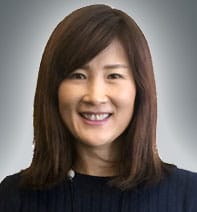
Dr. Eunice Eunhee Jang is a professor in the Department of Applied Psychology and Human Development in the Ontario Institute for Studies in Education, University of Toronto (OISE/UT). She obtained her Ph.D. in education psychology with specializations in language testing, educational measurement and program evaluation at the University of Illinois at Urbana-Champaign.
Dr. Jang has pursued her interests through various avenues by examining the potential of diagnostic cognitive assessment, integrating assessment into teaching and learning, and examining validity and fairness issues in testing. Her current research focuses on developing a dynamic assessment system that provides interactive digital interfaces for students, parents and teachers to support struggling readers’ cognitive, metacognitive and affective growth. Her team also works on developing a culturally sensitive play-based assessment framework for supporting and tracking Indigenous children’s language development. She collaborates with more than 30 international researchers on students’ self-regulated learning in technology-rich learning environments.
Her book, Focus on Assessment, published by Oxford University Press in 2014, provides practical guidelines for K–12 teachers based on her research on young language learners. She is the co-author of the research monograph OECD Reviews on Evaluation and Assessment in Education: Denmark with Shewbridge, Matthews and Santiago. Dr. Jang and her graduate researchers received the annual award for the most outstanding article of the year for their paper published in the Journal of Language Learning in 2013. Dr. Jang received a Jacqueline Ross TOEFL Dissertation Award from Educational Testing Service, a Caroline Clapham IELTS Masters Award from the University of Cambridge Local Examinations Syndicate and a Tatsuoka Measurement Award from the University of Illinois at Urbana-Champaign.
Dr. Jang is on the editorial boards of Language Testing in Asia, the Alberta Journal of Educational Research, Journal of Language Assessment Quarterly and Language Testing. She served on the adjudication committee for SSHRC Insight Development Grants, the International Language Testing Association Nominating Committee and the AERA Significant Research Contribution Award Committee. She is currently an elected board-member-at-large for the International Language Testing Association and a member of the Broader Measures of Success Advisory Committee for People for Education and the TOEFL Committee of Examiners. She chaired the TOEFL Young Students Research Grants program for 2013–2016.
Don Klinger
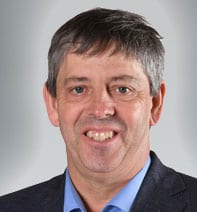
Dr. Don Klinger is the Pro Vice-Chancellor: Division of Education at the University of Waikato in New Zealand. He is a former associate dean and professor of assessment and evaluation at the Faculty of Education at Queen’s University. He obtained his Ph.D. in educational psychology, assessment and measurement from the University of Alberta, focusing on quantitative research methods and psychometrics.
Dr. Klinger’s research explores the psychometric and policy issues of large-scale assessments, program evaluation and the measurement of school effectiveness. Dr. Klinger is particularly interested in the factors that affect educational outcomes, and the educational decisions, practices and policies that arise from educational research.
Dr. Klinger is a founding member of the Assessment and Evaluation Group at Queen’s University. He has served as the president for the Canadian Educational Researchers’ Association, as a member of the Ontario Education Research Panel and as the president of the Canadian Society for the Study of Education, Canada’s largest body for educational research. Dr. Klinger also served on the EQAO Psychometric Expert Panel for 2004–2015. Among his contributions to educational assessment, Dr. Klinger chaired the task force that developed the Classroom Assessment Standards for PreK–12 Teachers on behalf of the Joint Committee on Standards for Educational Evaluation.
Ashleigh Molloy
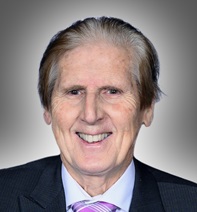
Dr. Ashleigh Molloy is an energized, motivated leader and the recipient of multiple international awards (Order of Ontario, Queen Elizabeth II Diamond Jubilee Medal, Sesquicentennial Medal from the Senate of Canada). He is recognized as a global leader in inclusion and equity. He is the Founder of Transformation Education International, a global leader in transformative professional development. He is also an adjunct professor with Niagara University in the Teacher Education Department. He consults, presents and delivers training at international conferences on varied education topics. He is a respected keynote speaker, author and an internationally renowned workshop presenter who has appeared on radio, television and digital media. He has devoted himself to the public good through building a community (commune bono/good of the community) that includes all, with a special dedication to working with the disability community.
Nya Njeuga

Nya Njeuga is superintendent of education at the Conseil des écoles catholiques du Centre-Est (CECCE) in Ottawa. During his years in the field of education, he has served as a high school principal, a school counsellor and a high school math and science teacher. He has also sat on a number of EQAO committees and worked as a scoring leader for the Grade 9 Assessment of Mathematics. Mr. Njeuga holds a master’s degree in mathematics from the University of Yaoundé in Cameroon, a master’s degree in physical science from the University of Geneva in Switzerland and a bachelor’s degree in education from the University of Ottawa. His interests include student well-being, the success of disadvantaged students, the integration of robotics and programming in schools, and innovative assessment practices.
Gary Pieters
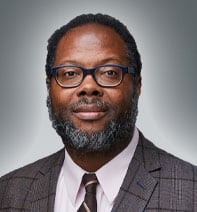
Gary Pieters is an educator who lives in Toronto. He has 25 years of professional experience in the education sector as a principal, vice-principal and teacher. He has served as a member of the Ontario Ministry of Education’s Minister’s Advisory Council on Special Education and as a member of the Toronto Islands Residential Community Trust Corporation. His extensive knowledge base and experience are leveraged through community building, youth engagement, equity, inclusion and diversity.
JoAnna Roberto
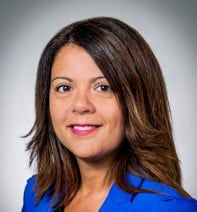
Dr. JoAnna Roberto is the director of education and secretary of the board at the Grand Erie District School Board (Grand Erie DSB). She completed a B.A. in 1997, an M.S.Ed. in 2000 and a Ph.D. in Leadership and Policy in 2021. She began her career in education in 1997 as an elementary teacher with the Hamilton-Wentworth Catholic District School Board. She worked at the Ministry of Education and then returned to her hometown of Niagara Falls, where she held several positions with the District School Board of Niagara (DSBN), including teacher; vice-principal; principal; and superintendent of education, curriculum and student achievement.
JoAnna was appointed as director of education at the Grand Erie DSB following eight years as a superintendent of education at the DSBN. As superintendent of curriculum and student achievement, she was responsible for the learning agenda and information technology in a district serving 36 000 students. She was also responsible for the math strategy, Indigenous education, French Immersion, early years, international education, English as a second language, and information technology. Currently, JoAnna serves a district that spans a geographic area encompassing the City of Brantford and the counties of Brant, Haldimand and Norfolk. The district serves 25 973 students, including 480 on Education Services Agreements with Six Nations of the Grand River and Mississaugas of the Credit First Nation.
The district has 58 elementary schools and 14 secondary schools, adult and alternate learning, and virtual learning in rural and urban settings, with 2500 employees. JoAnna is responsible for executive council, strategic direction, annual plans, board improvement planning and implementation, board governance, and the Communications and Community Relations Department.
Randolph Sealy
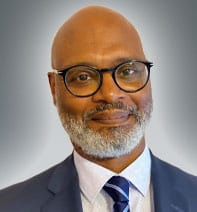
Randolph Sealy is a school social worker at the Toronto District School Board and has over 30 years of clinical practice working in children’s mental health. He has a bachelor of social work from Ryerson University, with a focus on anti-oppression social work. He completed his master of social work at York University. Mr. Sealy has a strong background in special needs and has instructed at Mothercraft on how to support students with disabilities. He is a part-time professor at Humber College, where he teaches grief and bereavement counselling, crisis intervention and advanced case management. He is a past board member of both the Learning Disabilities Association of Canada and the Learning Disabilities Association of Ontario. Additionally, he has sat on the Minister’s Postsecondary Advisory Committee on Disability Issues.
Christina van Barneveld
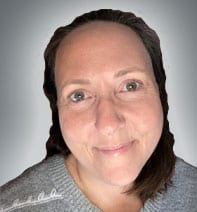
Dr. Christina van Barneveld is an associate professor at Lakehead University in Thunder Bay, Ontario, with a Ph.D. from OISE/UT. Her research areas include educational measurement and evaluation, quantitative research methods and large-scale assessment. Dr. van Barneveld’s research interests are 1) basic and advanced statistical techniques, research methodology and measurement theory, 2) implications of testing research for test developers, examinees as well as those who use test results and 3) advanced statistical techniques to increase understanding of assessment instruments, especially those used in training and for certification of professionals in the fields of education and medicine.
